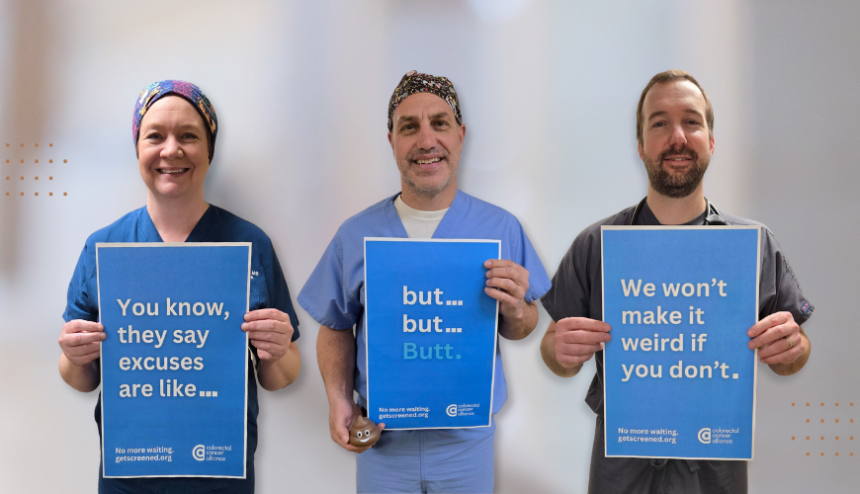By Billie Jo Grieve, MD, General Surgery
Colon cancer is one of the most common cancers, yet it is highly preventable through proper screening. Tests like at-home stool kits can detect cancer that is already present, but only a colonoscopy can prevent it by identifying and removing precancerous polyps. Understanding your screening options and the right time to begin ensures you can take control of your health and reduce your risk of colon cancer.
Understanding Cologuard: An At-Home Test
Gaining publicity in the past few years is the stool test, which is performed at home using a kit such as Cologuard. You use a stick or brush from the test kit, put a small amount of stool into a tube, and send it to a lab to be analyzed. The lab checks for blood and/or cancer DNA in your stool sample. Cologuard is excellent at detecting a cancer that is already present. However, it can fail to detect up to 60% of large precancerous polyps, missing critical opportunities for early intervention.
A negative result can give a false sense of security, leading some people to ignore potential symptoms of colorectal cancer, such as changes in bowel habits or unexplained weight loss. A positive result with an at-home test still requires a colonoscopy for confirmation.
Why Colonoscopy is the Best Colon Cancer Screening Option
The colonoscopy remains the gold standard for colon cancer screening with unparalleled accuracy and preventative capabilities. With a colonoscopy, your provider directly inspects the inside of your colon, also called your large intestine. The true power of a colonoscopy lies in its ability to prevent cancer before it starts! During the exam, we can detect and remove at least 95% of large polyps. Yes, you read that correctly. We remove the polyps that could develop into cancer, eliminating the need for additional interventions. If results are normal, you only need a colonoscopy every 10 years. If the results are abnormal, your next colonoscopy will likely be recommended in one to five years. It may be a disappointment, but remember, the goal is to prevent colorectal cancer.
Convenience vs. Prevention
While an at-home kit may seem more convenient than the dreaded colonoscopy prep, it’s important to understand its limitations. The test is better than no screening at all, but it can miss a lot.
Although the idea of a colonoscopy may be intimidating, it is a safe and effective procedure that not only detects cancer but also actively prevents it by removing precancerous polyps. This proactive approach has significantly reduced colon cancer rates in the U.S., offering peace of mind and long-term health benefits that far outweigh any temporary discomfort or inconvenience. Let’s work together to keep you healthy and cancer-free.
When to Start Colon Cancer Screening
Colon cancer is an important topic for everyone in their 40s to 70s. The American Cancer Society recommends beginning colon cancer screening at age 45. For individuals at high risk, such as those with a family history of colon cancer, doctors may recommend starting as early as age 40.

